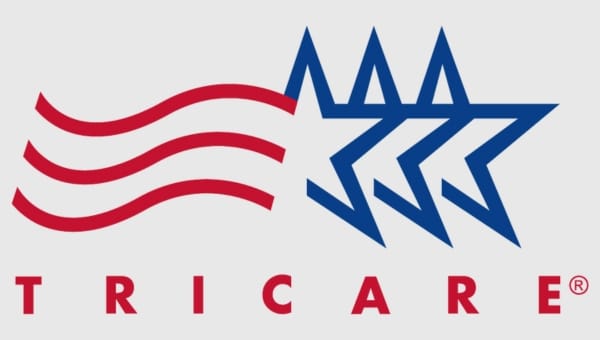Alcohol addiction doesn’t go away on its own. It only gets worse. Alcohol is one of the most commonly abused substances and has life-destroying consequences. From legal and employment trouble to health and relationship problems – alcohol abuse ruins lives.
Every year, alcohol kills over 95,150 Americans. That statistic doesn’t even account for the long-term health consequences alcohol abusers are diagnosed with each year.
If you or a loved one is struggling, please reach out for help. Our alcohol rehab programs in Phoenix and Las Vegas are your first step to a better life. We understand that admitting you have a problem and seeking help can be incredibly difficult, but it is the first step towards recovery.
At Vogue Recovery Center, we have a team of experienced professionals who specialize in treating alcohol addiction. Our treatment programs are tailored to meet each individual’s needs and address the underlying causes of their addiction. We use research-based therapies such as cognitive behavioral therapy, group counseling, and holistic approaches to help patients overcome their alcohol dependence.

Alcohol Addiction
Moderate alcohol use can often turn into dependence. This is when you no longer drink because you want to, you drink because you must. Without alcohol you begin to experience sickness and physical withdrawal, which can be life threatening. Most people with alcohol addiction are unable to stop drinking without medical assistance.
Alcohol travels through the bloodstream after it’s absorbed in the small intestines. Sometimes it enters the bloodstream more slowly due to food. The liver plays an important role in metabolizing alcohol. Most alcohol is metabolized in the liver by an enzyme called Alcohol Dehydrogenase or “ADH.” ADH breaks down the chemicals in alcohol into what’s known as acetaldehyde, and an enzyme closely related to ADH. Aldehyde Dehydrogenase transforms it into acetate. Acetate goes through a final metabolization process, becoming carbon dioxide and water, which leaves the body by elimination.
Problem drinkers make their livers and body continuously go through this process and take in alcohol quicker than the body can process. This contributes to the long-term damage to the liver and other organs from repeated alcohol abuse.
Signs you may need Alcohol Addiction Treatment
You may be wondering if you’re just a heavy drinker or have a real addiction to alcohol? There is a definite distinction between alcohol dependence and non-dependent drinkers. However, it’s not uncommon for social drinking to progress into alcohol addiction, especially if you have risk factors like a family history of alcoholism or co-occurring mental health disorders.
The standard clinical manual for diagnosing behavioral health disorders is the Diagnostic and Statistical Manual of Mental Disorders (DSM). The DSM doesn’t have a classification for alcoholism, but rather refers to excessive dependent drinking as an alcohol use disorder (AUD). There are three distinct levels of severities: mild, moderate, and severe.
A clinical diagnosis of an AUD must meet certain criteria observed by a behavioral health or medical professional. The current version of the DSM (DSM-5) states that meeting two of the following 11 criteria during a 12-month period likely indicated an alcohol use disorder:
- Occasionally or frequently drank more or for longer than you intended.
- Tried to cut back on alcohol or quit without success more than once.
- Spent a lot of time drinking or experiencing aftereffects of drinking like being hungover and sick.
- Were so preoccupied with drinking that you couldn’t think of much else.
- Drinking or aftereffects of drinking caused problems or absences at school or work or interfered with caring for your family or home.
- Continued to drink despite it causing negative consequences with your friends or family.
- Cut back or gave up on hobbies or activities that you once enjoyed because of drinking.
- Got into dangerous situations like using machinery, driving, swimming, or having unprotected sex because of drinking (more than once).
- Drinking even though it caused negative consequences to your mental or physical health or memory blackouts.
- Developed an alcohol tolerance, which means you needed more alcohol to get the same effect.
- Experienced alcohol withdrawal symptoms when the effects of alcohol wore off.
Do I Need Alcohol Rehab?
If you’re questioning whether you have an alcohol problem, you likely do. The best thing to do is reach out to a physician or one of our Phoenix or Las Vegas addiction specialists to assess your substance use. They can determine if and what kind of alcohol addiction treatment is needed. Some signs that you should attend an alcohol rehab program include:
- Not being able to reduce alcohol intake or stop drinking for a significant period of time.
- Having cravings for alcohol when you’re not drinking.
- Needing a little “hair of the dog” the day after drinking to help with a hangover or alcohol withdrawal symptoms.
- Increasing the amount you drink because you can no longer get the desired effects with your normal amount of alcohol.
- Ruminating about where, when, and how you’re going to drink again.
- Having a difficult time imagining life without alcohol.
- Using alcohol to cope with stress and other challenges.
- Needing alcohol to unwind or feel normal.
- Avoiding activities or events where alcohol will not be served or bringing your own alcohol.
- Decreased performance or missing work or school because of alcohol abuse (whether you’re drunk or you’re sick from the effects of alcohol).
- Continuing to drink despite negative effects on your relationships, finances, or health.
The National Institute on Alcohol Use and Alcoholism (NIAAA) define problematic, heavy drinking as:
- 4 or more drinks a day or more than 14 drinks a week (men)
- More than 3 drinks a day or over 7 drinks a week (women)
The Substance Abuse and Mental Health Services Administration (SAMHSA) define binge drinking as:
- Binge drinking is defined as 5 or more drinks for men and 4 or more drinks for women on the same day over a short amount of time for 5 or more days in the past month.
Other resources to help determine if you have an alcohol addiction include:
How Do You Treat Alcohol Addiction?
Detoxification is often the first step in our program, providing a safe and medically supervised process to remove toxins from your body. This is followed by an immersive rehabilitation experience where patients engage in educational workshops, therapeutic activities, and wellness practices that promote long-term recovery.
Continuing treatment after detoxing from alcohol is important. In an inpatient alcohol rehab program, you will address the reasons behind your alcohol addiction to heal. Abusing alcohol is just a symptom of a larger problem. Many people abuse drugs and alcohol to numb emotional pain. Common underlying issues of an alcohol use disorder include:
- Past trauma like emotional or physical abuse, unhealthy attachment styles with caregivers, or PTSD from military combat or other traumatic events
- Untreated co-occurring disorders like anxiety, depression, or bipolar disorder
- Poor self-worth or sense of self
- Significant stress
- Grief
- Relationship problems
While you’re working with behavioral health specialists to identify and heal from emotional pain that triggers drinking, you’ll also learn healthy coping skills. Because drug and alcohol abuse are typically ways to cope with life’s challenges, you need alternatives to use in place of substances when you face difficulties. Some alcohol addiction treatment centers use a blend of individual therapy, group therapy, and holistic therapy programs so you learn a variety of ways to cope with real world triggers.
Treatment for Alcohol & Co-Occurring Disorders
Most people with alcohol addictions require dual diagnosis treatment. This is an approach that addresses both the addiction and co-occurring conditions like mental illness and trauma simultaneously. For example, while attending treatment for alcohol abuse, you’d also receive depression treatment or anxiety treatment. This usually involves behavioral therapies as well as medications that help manage mental health disorders.
Need Help For Alcohol Addiction?
Our admissions team is available around the clock to help you or a loved one get the help you need.
Alcohol Addiction Treatment Programs
Treatment for alcoholism sometimes involves several levels of care. As you gain a stronger footing in sobriety, you gradually progress from a higher level of care through treatment that’s less hours a week. Types of treatment for alcohol abuse include:
Alcohol Detox
The alcohol detox process in rehab is a critical first step on the journey to recovery, designed to safely manage withdrawal symptoms when someone stops drinking. This medically supervised process ensures that individuals are comfortable and safe while toxins are eliminated from their body. The duration of detox varies depending on several factors, including the severity of the addiction and the individual’s physical health, but typically lasts anywhere from a few days to a week.
Residential Alcohol Rehab
You live at an inpatient rehab center in residence with other patients in treatment. During the day, you attend inpatient treatment programming, and in the evenings, you engage in support groups and recovery activities.
Partial Hospitalization Program (PHP)
After inpatient alcohol treatment you may move into a PHP. In this type of treatment, you attend addiction treatment during the day and spend your evenings at home or in a sober living residence.
Intensive Outpatient Program (IOP)
An IOP is a type of outpatient rehab program that usually meets 3 to 5 days a week with a total of 9 or 10 hours a week. You live at home or a sober living residence and may start easing back into work or school at this point.
Outpatient Alcohol Rehab
The final level of care in outpatient alcohol rehab meets for just one or three hours each week. This allows you to return to work, school, or other obligations while coming to a treatment facility each week to strengthen relapse-prevention skills.
The best treatment option for you depends on factors like:
- The severity of your alcohol misuse
- How long you’ve been abusing alcohol
- Co-occurring physical or mental conditions
- Your outside support system
What To Expect At Our Alcohol Addiction Rehab Center
At Vogue Recovery Center’s alcohol addiction rehab Center, individuals can expect a comprehensive and compassionate approach to rehabilitation that is tailored to meet their unique needs. From the moment you step through our doors, you’ll be embraced by a supportive community dedicated to your recovery journey.
Our alcohol addiction rehab program begins with a thorough assessment to understand your specific situation, allowing us to create a personalized treatment plan that addresses not only alcohol dependency but also any underlying issues that contribute to addiction. After, patients will enter one of our levels of care — detox, inpatient, partial hospitalization, intensive outpatient, or outpatient treatment. During treatment at Vogue Recovery, our alcohol addiction rehab programs provide a blend of research-based therapies and holistic approaches designed to heal the whole person. We believe in treating not just the symptoms of addiction but also the mental, emotional, and physical aspects that accompany it.
Our serene and luxurious alcohol addiction rehab facilities offer an ideal environment for healing and reflection, equipped with amenities that ensure comfort throughout your stay. With a commitment to privacy and dignity, Vogue Recovery Center ensures a discreet and respectful experience for all patients. At Vogue Recovery Center’s Alcohol Addiction Rehab Center, you’re not just treated; you’re understood, respected, and empowered towards a life of sobriety.
What Is Alcohol Detox Like?
Alcohol withdrawal symptoms are some of the most dangerous of all addictive substances. If you stop drinking alcohol cold turkey and try to detox on your own, you’re at risk for painful withdrawal symptoms and death in rare cases. It’s imperative to go through a medical detox program when you begin alcohol addiction treatment.
At our Phoenix and Las Vegas detox centers, medical professionals keep you safe and as comfortable as possible while your body eliminates alcohol toxins. They can prescribe alcohol treatment medications that ease withdrawal symptoms and reduce alcohol cravings like naltrexone and acamprosate. A 24/7 staff of healthcare professionals will monitor your vital signs and comfort level and attend to any medical emergencies.

What Happens After Alcohol Addiction Treatment?
Recovery is a lifelong pursuit that you must continue to work on. Time in an alcohol rehab center is the beginning of your recovery where you gain the skills to maintain sobriety. To support recovery after treatment, many people participate in:
- Individual therapy
- 12-step programs like Alcoholics Anonymous (AA) or 12-step alternatives like SMART Recovery
- Medication and medical management appointments for co-occurring disorders
- Alumni programs at their treatment center
- Mindfulness
- Fitness
- Regular, fun sober activities and hobbies
- Spirituality practices
You may also choose to live in a sober living residence in early recovery. It’s important to live in an environment that supports sobriety and minimizes triggers. Sometimes home doesn’t do this.
Does Insurance Cover Rehab For Alcohol Abuse?
One of the most-asked questions when it comes to treating alcohol addiction is whether or not insurance will cover the cost of treatment. If you’re wondering how to pay for rehab, the good news is that insurance can cover part or all of the cost of treatment. All insurance providers and policies are different, but a free insurance verification with the team at Vogue Recovery Center can offer more information about what treatment options for substance abuse and mental health issues you have available based on your policy.
If you or a loved one is struggling with an addiction to alcohol, don’t hesitate to contact the admissions team at Vogue Recovery Center. We can help you get started with your recovery journey!
How Do I Get Help for Alcohol Addiction?
If you’re ready to turn your life around, we can help. Vogue Recovery Center is known for research-based drug and alcohol addiction treatment that’s both effective and engaging. We use traditional approaches like cognitive behavioral therapy and dialectical behavior therapy as well as holistic healing activities such as art therapy, yoga, and mindfulness.
Recovery can’t wait. Reach out today. Vogue Recovery Center has locations in Las Vegas and Phoenix. We’ve seen thousands of patients take back their lives from addiction. We’re confident we can help you or a loved one recover, too. Call us for a free, confidential consultation!











